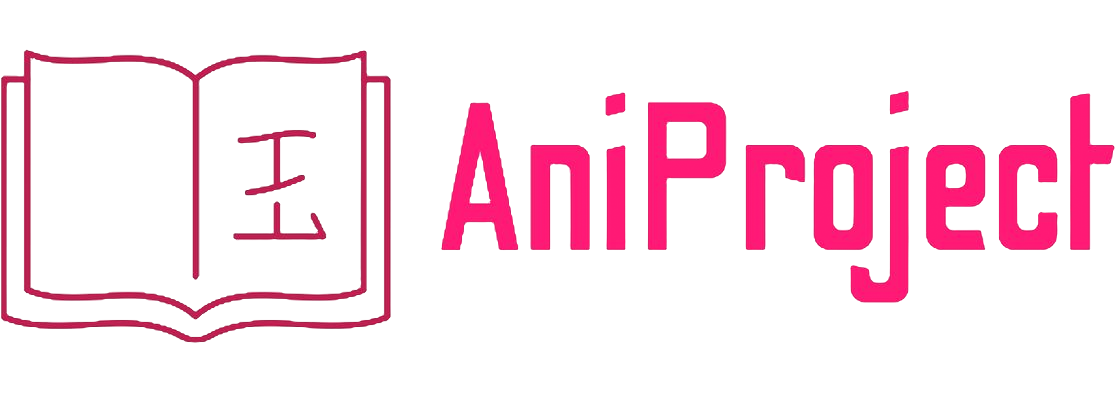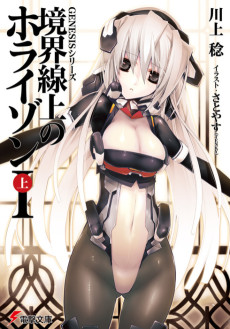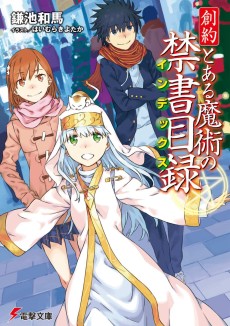OWARI NO CHRONICLE
STATUS
COMPLETE
VOLUMES
14
RELEASE
December 25, 2005
CHAPTERS
258
DESCRIPTION
60 years before World War II, mankind found ten alternate worlds that exist but with different other physical laws. The force that supports these alternate worlds is called Concept. At the same time, mankind also discovered that all these alternate worlds are about to collide and the ones without the most amount of Concept will be annihilated.
To survive, a world call Low-G, which has no Positive Concepts of its own, started the Concept War to try to secure the most amount of Concepts. It took all the other worlds', called Gs, positive concepts and destroyed them all. All that remains is Low-G.
Now 60 years later, which is the present, Low-G is facing destruction because of its Negative Concepts are rapidly expanding. To resolve this, Low-G needs Positive Concepts from all the other alternate worlds. UCAT, the team that destroyed the alternate worlds 60 years ago formed the Team Leviathan to begin negotiation with the survivors from all the other worlds.
Mikoto Sayama is the protagonist of the story. After his grandpa, who was a key figure in the Concept War and in the negotiation team, passed away, IAI, UCAT's mother branch in Japan, explained everything to Mikoto and had him take over the negotiation seat.
Carrying the phrase "The family name Sayama is villain itself" and all the hatred, young Mikoto begins his negotiation with the other worlds.
CAST
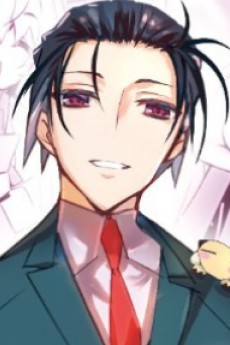
Mikoto Sayama
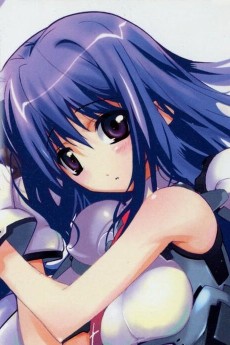
Sadagiri Shinjou
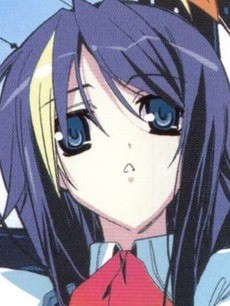
Mikage

Mikoku Toda
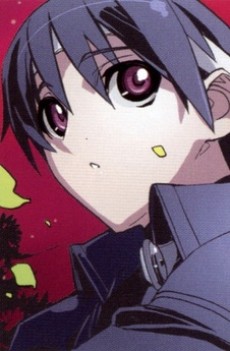
Ryuuji Hiba
CHAPTERS
RELATED TO OWARI NO CHRONICLE
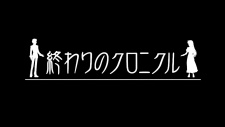 SPECIAL ActionOwari no Chronicle
SPECIAL ActionOwari no ChronicleREVIEWS

Ayaya
100/100Everyone! Can you feel the strength of choosing the world!?Continue on AniList
Everyone! Can you hear the sounds of your struggle against the world!? Everyone! Can you feel the strength that comes from choosing the world!? Everyone!! Do you understand!? Make sure you understand—this is a splendid night!! Listen. I will say it now! The name Sayama stands for villainy! Everyone! We stand at a crossroads for the world! Everyone! The world lies right before your eyes! Listen, everyone! Tonight’s foes are a spoiled bunch who wish to destroy the current world and create a new one! And listen carefully, everyone! We are lacking, we are insufficient, and we can never do everything right. But… We must not see that as a bad thing! We are delinquents! You could say we are the world’s delinquents! But if we want to be self-deprecating and stubborn, we would simply call ourselves ‘bad’! Listen, everyone. We were enjoying our delinquent life—staring out the classroom window, thinking about where we might go—yet now a delinquent-hating enemy has come to destroy us, the school, and everything with it! Such nonsense! Listen, everyone. Delinquents do not punch people. But they are free to punch fools! And listen carefully, everyone! Stand up, all you delinquents! We do not need to be good! But never come to a stop—always aim to leave your mark on this world! So stand up and pave the way forward, you delinquents! And to do that… Listen, everyone. I have a single command! Ahead. Ahead. Go ahead!! We will advance, strike, and bring together the worlds we have created. And to do that, we must move forward—our strength in our right hand and our will in our left!! Where is your answer!? TESTAMENT.
In one of Japan’s golden eras of fiction—spanning anime, manga, and novels—the 2000s left a mark on an entire generation. That period gave us legendary stories that dominated their respective fields, such as Suzumiya Haruhi of Nagaru Tanigawa, Zaregoto of NISIO ISIN, Ryōgo Narita's Baccano, and others. But there was also a lesser-talked-about “silent hit” from that time, one just as legendary as those titles. I’m talking about Owari no Chronicle, written by Minoru Kawakami—part of the KAWAKAMIVERSE, one of the most ambitious universes in fiction. And Owari no Chronicle, or The Ending Chronicle—ironically with “ending” in the title—is actually one of the beginnings of this journey.
Within this KAWAKAMIVERSE, Owari no Chronicle belongs to the AHEAD SERIES, a label you’ll see on the cover of every volume. In the volume below, you can see it at the top-left.


Owari no Chronicle was a success in Japan, and it’s a very large story. Although there are only 14 volumes, the scale is huge, with the final volume alone having over 1,000 pages. So even with just 14 volumes, it feels like much more.
In rankings like Kono Light Novel ga Sugoi! in 2006 and 2007, it placed among the top 10 light novels of the time, ahead of big names. Its impact was significant when it came out, and even without an anime adaptation, the love each reader has for the series is clear, especially when we see that its sequel, Kyoukaisenjou no Horizon, became one of the best-selling anime of the century when it aired, a complete surprise that showed the strength of its loyal fanbase.
As evidence, audiobooks of the series were released, which you can find online, and an original composer created music albums for the series. You can also find all the tracks on YouTube, including one I shared above. The composer, Onoken, captures the universe of Owakuro beautifully and precisely. With Regalia being considered the Main Theme of Owari no Chronicle.Now, with some context provided, it’s time to start talking about what this Chronicle is.

__THE WORLD WILL END ON DECEMBER 25TH 2005.__ Set in 2005, the story follows Mikoto Sayama, a high school student and vice-president of the Taka-Akita Academy's Student Council. After the death of his grandfather, Mikoto is summoned by the powerful corporation IAI and learns of the existence of UCAT, a secret organization involved in a hidden war known as the "Concept War."
At the heart of this narrative lies a universe where reality isn't a single, absolute entity, but the result of multiple coexisting worlds—known as Gears. Each Gear is governed by its own fundamental laws or "concepts." These laws are as basic as gravity, the passage of time, or the very definition of matter.
The story takes place after a catastrophic conflict called the War of Concepts, in which these worlds collided and fought for control and survival. The conflict wasn't just physical but ontological: to destroy a world was to steal or annihilate its concepts. If a Gear lost more than 50% of its concepts, it ceased to exist. In the end, only one remained: Low-Gear (our world), a survivor without its own concepts, which lived by absorbing those of others.
The plot follows the post-war period, time marked by political tensions, traumatic legacies, hidden power struggles. In Low-Gear, survivors from the destroyed Gears are scattered, some living as refugees, others as secret enemies.
In this setting --------- the __Leviathan Road__ emerges --------- a project that aims to negotiate, reconcile, and integrate the last fragments of the old civilizations while protecting Low-Gear from both external and internal threats. At the center of it all is Sayama Mikoto, the grandson of a key figure in the past war, Sayama Kaoru. He inherits and must carry out the Leviathan Road, a series of negotiations with the remnants of all the other Gears. This is a diplomatic effort to ensure everyone can finally live in this world problem-free and connected.
There's the moral weight of a world that survived at the expense of others; there are factions still carrying pride and resentment; and there are individuals who must decide whether to perpetuate the cycle of destruction or build new bridges between realities.
As you can see, this is an ambitious and vast sci-fi world where we'll explore and understand the worlds of all the different Gears. We'll discover how each one works completely differently from our own, how the laws of physics can be different, and how in our universe, they're just one possibility out of many. We'll get to know the "unknown."
Reading this work, I developed and created a vision for world-building, deciding to fit it into two categories: Macroworldbuilding and Microworldbuilding, as this series has both.
These two terms, which I might have just invented, define a style of world-building.Macroworldbuilding is for those stories where the world's construction is broad and vast, covering countries, characters, cities, core thematic elements, background lore, and so on.

Microworldbuilding, on the other hand, I'd define as the construction of the small details, like when we get in-depth info on weapons, machines, or even things like the inner workings of a car or a robot, and how these elements are used in fights or affect the plot.
There are very few stories that possess both macro and micro elements, and this is the first magic of Kawakami's Owari no Chronicle—this story has both. In addition to its solid world-building that explains automatons, concepts, or forms of concepts, we get to know each Gear and its unique characteristics, and their histories are direct references to mythologies from all over the world—African, Norse, Greek, German, Chinese, and many more. For each Gear, there's a piece of world mythology.
The battle system in Owari no Chronicle is truly spectacular. Honestly, it's far ahead of and much more creative than thousands of battle shonen, and I believe it to be one of the best, if not the best, battle systems in the light novel medium due to its creativity.
Instead of relying on generic spells, energy blasts, or conventional martial arts, the fights here are based on Concepts—primordial forces that define the laws of reality for each world. These concepts can distort gravity, invert abilities, transform light into physical energy, or even rewrite expectations, causing attacks to fail before they even happen.

Each Gear (world) brings a unique set of laws and combat styles. This means that a fight against an opponent from 8th-Gear, who manipulates heat and life, requires completely different strategies than a duel against an enemy from 4th-Gear, whose domain is flora and healing. Or "Art of Walking" of 2nd Gear, which makes the user effectively invisible by moving in ways that evade perception across all five senses. Consider 3rd-Gear and its mecha, Typhon, a God of War built to control time itself. It manipulates its surroundings through time-based conceptual effects, such as erasing time except during its own attack, and creating Concept Spaces—zones where reality itself is reconfigured according to 3rd-Gear’s rules. This is beyond flashy—it’s the ultimate synthesis of concept and machinery. The environment also becomes an active part of the conflict, as when a Concept is imposed, it alters not only the characters' power but the entire surrounding environment.
The key difference is that these powers aren't isolated tricks; they behave as consistent systems of alternative physics. To win, brute force isn't enough—you need to understand how the concept operates, predict your opponent's reasoning, and manipulate "reality" itself to your advantage. Instead of a simple clash of blows, each battle becomes a philosophical and strategic puzzle, where words and definitions carry as much weight as weapons and explosions.For this reason, in the landscape of light novels and even battle shonen, Owari no Chronicle's system stands out as something that not only entertains but also stimulates reasoning, exploring the maximum potential of the idea of a "conceptual battle" and proving that it's possible to create truly unique combat without sacrificing the universe's internal coherence.
"You will only see a portion of it. It will only be the beginning. Prepare yourself. Once you stand at the entrance, you cannot back out until you have seen it all to the end. You will see the development of history that began with us,” he paused, “and ends with that girl. You will see the history of how everything came to an end. You will see the ending chronicle.

And so, within such a well-built and solid world, there's also a powerful philosophy and message behind everything.
Everyone! It's time to talk about the themes, characters and messages of Owakuro.
The surname Sayama indicates a villain.
In this story, there are two main characters who form the core of the series: Sayama and... Shinjou, the heroine, found by Sayama and saved by him while she was fighting a werewolf from the 1st Gear, which is where our story truly begins, and the world of the Chronicle of the End start to move.

Sayama is introduced as a sharp, direct, and seemingly cold individual. From the outside, he is a confident strategist, but inwardly, he is a fractured character burdened, at first, mainly by his legacy. He sees himself not as a hero, but as the necessary "villain", a function he must fulfill for the sake of peace. He is willing to get his hands dirty and make the hard choices others won't. This self-perception isn't born of malice, but of a deep-seated fear: the fear that if he is the "hero" the world needs, then the world itself is so broken that it has no place for the goodness of someone like Shinjou. Sayama’s greatest fear is not failure, but losing his humanity in the process of saving the world. This is why he hesitates to get emotionally close to people, especially Shinjou—he fears dragging her into his own perceived darkness.
Shinjou, in turn, is everything Sayama is not. While he calculates and strategizes, she acts on emotional truth. She isn't a born leader or a tactical genius, but her presence is essential because she humanizes him. She doesn’t try to "fix" Sayama; she accepts him for who he is, flaws and all. She sees that he isn’t driven by a lust for power, but by a painful, thankless sense of duty—a willingness to carry the sins of history so others won’t have to.
Owari no Chronicle is a narrative that challenges easy notions of good and evil. It isn't a simple story of heroes versus villains, but a deep exploration of morality, identity, and the heavy burden of responsibility. In this complex world, Sayama Mikoto and Shinjou are two complementary halves of a single philosophical idea, representing opposing approaches to facing a harsh reality: one rooted in rational sacrifice, the other in emotional conviction. Eventually, this will become a very important core theme in the story. Reason vs emotion.
Can I accept becoming a villain in some people's eyes as long as I know who I am to the people I care about?
He knows he’ll be misunderstood, maybe even hated, and that he may have to sacrifice his image, safety, and comfort.
But if Shinjou - the person who knows him best - sees him, trusts him, and stands beside him, then he can move forward.
Not as a cold strategist.
But as Sayama Mikoto - someone who chooses to carry pain, responsibility, and love, all at once.At first, Sayama Mikoto has no plans, goals, or even morals or ideals; it's as if they're a blank slate. One of the most fantastic and impactful scenes for me in all of Volume 1 is a moment where both characters have to decide the life or death of an enemy. Shinjou has the weapon, but she doesn't shoot; she's afraid to and hesitates, backing away. Sayama also does nothing, not because he feels the same way as Shinjou, but because he has no ideals and doesn't know what to do. It's only then that his own brain rationally concludes, "if he's the enemy, then he has to die," which doesn't mark an ideal of his own... wait, why he has to die? Is him really the enemy? Why is he the enemy, when the wrong are kinda... actually... us? Can I carry the weight of this choice, knowing it may hurt others?

It breaks the normal "evil" of stories in general - It seems no one is the true evil in this story, but only differents perspectives. He is willing to protect his, so maybe he's becoming the villain to protect peace... it means that in other eyes that don't match with him like the other gears, he may be a villain, while from our perspective he's doing what is right.
Sayama Mikoto wants to be wrong. And Shinjou is the one who is right. The Shinjou who didn't pull the trigger and hesitated. Her idealistic kindness. Shinjou is the one who is right. She is truly a heroine. Then the world allows (or even demands) someone like him to exist. And that's terrifying.
Sayama is someone who:
Makes cold, strategic, rational, and often painful decisions; Doesn't follow a clear moral compass like Shinjou; Carries the burden of "doing what needs to be done"; And believes that, because of this, he is "wrong", he is the VILLAIN!But what if he is right?
If Sayama is right, then true justice is cold, pragmatic, and sacrificial, and that validates all his harsh actions. And that, deep down, destroys him. This would mean that Shinjou's idealistic kindness is wrong or useless, and that the path of conflict, of rationalized violence... is inevitable. That the world demands someone abandon their own feelings, morals, and even love, for the sake of a greater good. And Sayama doesn't want that. He doesn't want to live in a world where he is the correct model.
He'd rather be the necessary villain than the cold hero.
Shinjou is essential. She represents the possibility of genuine kindness, holds moral convictions even when afraid, refuses to harm unnecessarily, and does not deny empathy or fragility. She is a living moral compass beside Sayama Mikoto. Shinjou validates Sayama's effort to "be wrong in the right way."
“I think I will try becoming a villain.”
This means that he will bear the consequences of being hated by others and everyone else.

She sees that Sayama isn't becoming a villain for power—he's choosing a painful, thankless path to carry the sins of history so others won't have to. She stays because she refuses to leave him to walk that path by himself.
The Sayamas are associated with unpopular, harsh, and even immoral decisions made during the Concept War. Sayama's grandfather, Sayama Kaoru, was known for doing the necessary dirty work to ensure the survival of Low-Gear—even if it meant sacrificing other Gears or making ethically questionable decisions.
Sayama Mikoto inherits this "tainted name," and he doesn't reject it. He accepts the stigma of "villain" if it means facing truths that others prefer to ignore and making difficult decisions for the greater good.

Ladies, gentlemen. Everyone! Everything I have said so far is only up to the first two volumes, an introduction to both characters.
These characters eventually have many more layers than this, just as Shinjou has much more to her, but I won't go into too much detail to avoid revealing any spoilers. I personally don't like to write reviews with spoilers.
Is the real one right by default? Is it wrong to survive?
Does being truthful mean being morally superior?
Is survival, even if based on lies or self-protection, an unforgivable mistake?
"If so, has everything I've been thankful for been wrong!?"The moral worth of life is not decided at its origin, but in how it is lived. Owari no Chronicle admits that lies have been told and sins committed, but rejects the idea that these define a person forever.
“We’ll lie… confess… gain forgiveness bit by bit… and become right bit by bit.”
The Bible. The Holy Bible of the Creator and of Jesus Christ. These are things mentioned in this story.
Our "original sin." Jesus Christ died on the cross for us.
This is not an inescapable curse but a starting point. Redemption is possible, not through purity, but through gradual acts of honesty, repair, and change. We need to refuse to accept annihilation as justice marks a break in the cycle of vengeance. We do not defend the past; we claim the future.
Sayama is not asked to be a hero who purifies the past, but a villain who carries it openly, takes the blame, and forces the world toward a reconciliation it resists. This echoes tragic archetypes like even Christ, but with a modern twist: redemption is collective, negotiated, and incomplete.A flawed, "wrong" life.

In other words, this is the essence of the entire story of Minoru Kawakami's Owari no Chronicle.
Our characters accept the crimes of our world, Low-Gear, without excuse.
We refuse annihilation as atonement.
We appoint a “villain” to lead. Not to destroy the enemy, but to preserve enough of the present for a shared future to be possible.
__The villain is not the one who breaks the world, but the one willing to bear its brokenness so others can live.__
Owari no Chronicle uses its sci-fi metaphysics to dramatize one of the oldest philosophical tensions: whether justice is found in returning to an imagined purity or in creating something new from imperfection.
By making Shinjou the moral center and Sayama the willing villain, the story answers decisively:We do not deserve to live because we are pure; we deserve to live because we can change.
Leadership is not the right to claim innocence, but the courage to act while guilty.
In this world of fakes, lies, and inherited sins, the most radical act is not the destruction of the false — but the patient, stubborn building of the true, even if it takes generations.Here it is. The central core of this chronicle.
The figure of the villain not as an enemy, but as the story's guide to an impossible reconciliation without pain.
Sayama is the villain because only someone hated can force others to change. He is the face of the unforgivable past, but also the only one who can carry that past toward a more honest future.
“I’m fine with being wrong. I’m fine with looking wrong to others. We’ll work to do something about ourselves and make ourselves right. We’ll lie, but as we keep doing that, we’ll gain forgiveness bit by bit, confess our wrongdoings bit by bit, and better ourselves bit by bit.”
That is why we have villains in this world!
Sayama Mikoto! Right now, I want this world’s righteousness. I want a righteousness that doesn’t exist yet. So you become the villain. You play the part of the evil that does exist and guide us into the future I want!!”Humanity only evolves by facing its villainy.
And only those who accept their role as villains with lucidity and love can lead it with justice.I am born guilty. You are born guilty. We are born guilty. Not by choice, but by inheritance. Even if it all started with lies or destruction, that doesn't determine who we are today. We are responsible for what we choose to build from it. We must accept guilt, but refuse to let it define us.
__Ryuuji Hiba, the Hero.__ 
In addition to Sayama Mikoto and Shinjou, there are many other fantastic characters in this series, and their stories are only concluded at the end of volume 4. Of all of them, honorable mentions to Kazami and Izumo, but the development of Hiba Ryuuji with his partner Mikage, from the 3rd Gear, which corresponds to volumes 3-A, 3-B, and 3-C of Owari no Chronicle, impressed me the most, especially during the final stretch of the series in 6-B and 7. But to not go on for too long, we won't talk about them specifically, but...
__what does it mean to be a hero?__ Hiba Ryuuji’s relationship with Mikage is outstanding. The question that drives their arc is not “Will he save her?”, but “Can they choose to live for each other when the world says they shouldn’t even exist as they are?”
Being a hero isn't about never falling. It's about knowing why—and for whom—you choose to keep getting up.
__Brunhild Schild, the Guardian of the Dead__ 
“Schlafe in himmlischer Ruh.” Between resentment, pride, and doubt, Brunhild Schild stands as a tragic figure: a woman who became the symbol of a dead people, yet has not learned how to live. The Guardian of the Dead, Brunhild represents an essential tension between the pride of a destroyed past, the desire for vengeance in the name of the fallen, and the need to move forward without forgetting. She is not naive. She knows the world is cruel. But she must learn that returning cruelty is not the only possible response. She is the echo of a vanished people, pride transformed into mourning, and violence disguised as justice.
Brunhild's strength lies in her broken heart, not because it shattered, but because she have the courage to rebuild it.
__Heo Thunderson, the legacy of Choice and Freedom__ 
__What is justice?__ "Why do you try to stop others from crying?" One responded that it is his "justice." But Heo disagrees. She argues that justice isn't about stopping people from crying, because whenever she cried, she kept crying. Heo reveals that what made her move forward, what made her fly again, wasn't the absence of tears, but the ability to choose for herself. Her allies didn't stop her from crying, but gave her the power to decide her own path. Her strength doesn't come from a justice that silences pain, but from the freedom of choice she was given. This is a debate about justice. While one believes justice is a means of control to end pain, Heo argues that true justice is giving others the freedom to make their own choices and deal with their emotions, with the support of those who care.
Justice is an ideal of support and freedom.
Meanwhile, for Heo, happiness is linked to freedom. She finds happiness in the pure joy of flying, of resisting limitations, and of pursuing her goals with determination. Her happiness isn't the absence of tears or pain, but rather the ability to feel free to act according to her own choices and convictions. It's the happiness of knowing she is strong enough to fight, but also of being certain that there are people by her side who support her.

At its heart, Owari no Chronicle is a story about incompleteness — not as a flaw to be corrected, but as the essential condition of existence. The series dismantles the idea of a perfect resolution, perfect justice, or perfect hero, and replaces them with something both more fragile and more enduring: the will to keep moving forward in spite of contradiction. The work rejects the fantasy of starting over from nothing. Every world, every people, every self is the product of what came before — victories, mistakes, and compromises alike.
The past cannot be erased without destroying the meaning of the present. Renewal does not come from erasure but from integration: carrying the burdens of history forward while refusing to be trapped by them.This is why “perfection” is treated with suspicion in the narrative’s logic — perfection is sterile. Life requires the imperfect to evolve.
Humanity is presented not as the owner of the world but as a signatory to a contract: a mutual promise between the living, the dead, and the unborn. This contract is informal, intangible, and constantly renegotiated — but it binds nonetheless.
We inherit not only the triumphs but the debts of the past.
We act not only for ourselves but for those who will follow.
We have no right to abandon the world simply because it is flawed.
the “right” choice is not the one that secures personal comfort or ideological purity, but the one that sustains the continuity of that contract.

One of the most subversive ideas in Owari no Chronicle is the redefinition of “villain.”
Here, the villain is the one willing to take on the thankless roles: to make the compromises that will be condemned, to act in ways that are morally ambiguous if they protect the continuity of the world.
It is a rejection of self-image as a moral compass. True responsibility often means accepting that you will be misunderstood, unloved, or even hated — and still choosing to act.We will fail.
We will act without full knowledge.
We will make decisions that hurt others.
And yet — stopping is the only one unforgivable choice.
To “move forward” in this ending chronicle is not about blind optimism or inevitable progress; it is about the conscious choice to continue despite knowing the world’s weight. Forward motion is an act of defiance against despair.
None of you can replace any of the others. And if you could replace each other…then wouldn’t everyone be the same?
Keeping your distance because you are not sure where you belong takes quite a bit of determination. And yet even the world’s air is blushing and panting as if it floats around you in the hopes that you will breath it in.
There was more to a fight than having resolve, but that could be the deciding factor in some things. Without resolve, one could not gather the strength needed to withstand pain.
This is a story,
This is a tale,
This is a chronicleAbout inhabiting the world as it is: fragmented, contradictory, and incomplete — and claiming it anyway.
It teaches that the world is not something you receive in a finished state. It is something you co-author with everyone who came before you and everyone who will come after. And that co-authorship requires accepting that your role will sometimes be celebrated, sometimes condemned, and sometimes invisible.
The series’ unspoken demand to the reader is simple but relentless:
Do not wait for the perfect moment or perfect self. Continue anyway.
The world — flawed, living, and shared — is worth the weight.“I will give you the answer! What is it that is made up of emotion and reason, that produces all things, and that allows even contradictions? It is something everyone has.
It is the power of one’s will!!
Remember this! Both emotion and reason are but a single part of a thinking mind!
Never forget! And even as you tremble, desire the world! After all, you currently bear everything we stand for! That may be painful, you may give in to anxiety or anger, and it may not be what you wished for. But… this is something only you can wish for!”Let's then see the horizon.

SIMILAR MANGAS YOU MAY LIKE
 NOVEL ActionGekitotsu no Hexennacht
NOVEL ActionGekitotsu no Hexennacht NOVEL EcchiPanzerpolis 1935
NOVEL EcchiPanzerpolis 1935 NOVEL ActionAerial City
NOVEL ActionAerial City NOVEL ActionToaru Majutsu no Index
NOVEL ActionToaru Majutsu no Index
SCORE
- (3.4/5)
MORE INFO
Ended inDecember 25, 2005
Favorited by 49 Users

